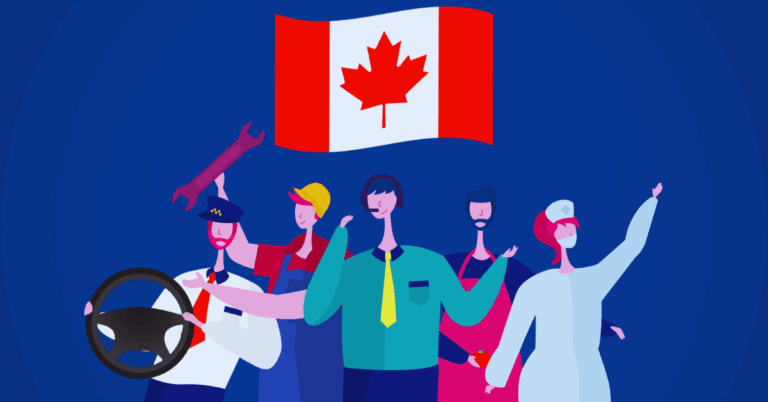Scholarships funded by public agencies lower the cost of higher education for learners worldwide.
These awards recognise talent, ease financial pressure, and encourage social mobility.
When you secure a government scholarship, you study with reduced debt, add a respected credential to your résumé, and enter global networks that strengthen career prospects.
Government Scholarships in Canada
Government scholarships are financial awards distributed by local, regional, or national authorities.
Programmes vary, yet they usually target academic excellence, financial need, or strategic fields such as STEM, health, or public policy. Funding may cover tuition, living expenses, travel, or research costs.
Canadian Scholarships Explained
Canada allocates significant resources to attract and support international talent. The flagship portal My EduCanada lists federal programmes managed by Global Affairs Canada as well as offers from provincial ministries and participating universities.
Key Government Programmes on My EduCanada:
- Vanier Canada Graduate Scholarships – CAD 50,000 per year for doctoral studies in health, natural sciences, engineering, social sciences, or humanities.
- Banting Postdoctoral Fellowships – CAD 70,000 per year for two years to attract top‑tier postdoctoral researchers.
- Canada‑ASEAN Scholarships and Educational Exchanges for Development (SEED) – Short‑term exchange funding targeting students from ASEAN member states.
- Emerging Leaders in the Americas Program (ELAP) – Four‑ to six‑month study or research stays for Latin American and Caribbean citizens.
- Canadian Commonwealth Scholarship Program – Master’s and PhD funding for citizens of Commonwealth countries.
Eligibility Checklist
You improve your chances by confirming each of the following points before applying:
- Academic standing: Most programmes expect a high GPA or first‑class average.
- Language proficiency: Proof of English or French ability (IELTS, TOEFL, TEF, or TCF) is often mandatory.
- Programme fit: Your research interests or study goals must align with Canada’s priority areas.
- Citizenship or residency status: Some awards target specific regions, while others welcome candidates worldwide.
- Application completeness: Missing forms or signatures frequently cause ineligible decisions.
Step‑by‑Step Application Process
The sections below guide you through each phase, ensuring your submission meets Canadian government standards.
1. Research Suitable Programmes
Start early—ideally 12 months before your intended intake. On My EduCanada, filter by degree level, discipline, and country of citizenship. Read the description thoroughly, focusing on objectives, funding value, duration, and deadline.
Create a spreadsheet tracking requirements and due dates. Matching your goals with a programme’s mandate signals to evaluators that you belong in their cohort.
2. Gather Your Documents
Organise paperwork well ahead of time, because official records can take weeks to arrive. Typical files include:
- Transcripts: Obtain sealed or secure electronic copies showing full academic history.
- Letters of recommendation: Request two or three letters from supervisors who know your academic abilities and character. Provide them with a résumé and award criteria so they can write focused endorsements.
- Statement of purpose: Draft a concise essay (500‑750 words) that links your background, research interests, and long‑term impact to Canadian priorities.
- Language test results: Schedule IELTS or TEF early to avoid score delays.
- Passport identification page: Ensure your passport stays valid for the study period plus six months.
- Financial documents (if required): Some need‑based awards ask for proof of household income.
3. Submit Your Application
Complete the online form carefully. Use the exact spelling from your passport and double‑check every field. Convert documents to the preferred file format (usually PDF) and respect individual size limits.
Once uploaded, review the preview to confirm that pages display correctly. Submit at least 48 hours before the deadline to avoid last‑minute technical issues.
4. Follow Up and Interview Preparation
After submission, monitor your email—including spam folders—for confirmation and potential interview invitations.
If an interview is scheduled, expect questions about your academic record, your project’s relevance to Canada, and your leadership potential.
Practice concise answers that highlight outcomes rather than generic ambitions. Prepare examples that demonstrate resilience, teamwork, and cultural adaptability.
How Can You Create a Competitive Profile
Admission panels evaluate more than grades. They want evidence that you will contribute to Canadian research, economy, and society.
Academic Excellence
Aim for consistently strong marks and, where possible, enroll in advanced or honours courses. Present any published papers, conference posters, or lab assistant roles to show research aptitude.
Extracurricular Impact
Universities and agencies appreciate applicants who extend learning beyond the classroom. Volunteer positions, student organisations, and community projects confirm leadership readiness.
Emphasise outcomes—such as funds raised, hours served, or policies influenced—because metrics prove effectiveness.
Letters of Recommendation
Choose referees with direct knowledge of your achievements. Provide them with bullet points outlining your accomplishments to help them write targeted support.
Confirm they can meet the submission deadline and send polite reminders two weeks in advance.
Personal Statement Strategies
Start with a clear hook that connects your motivation to a global issue the scholarship seeks to address.
Outline two or three academic or professional milestones, detailing skills gained. Explain how studying in Canada advances your career plan and benefits your home community worldwide.
Conclude with a realistic timeline for achieving goals, demonstrating foresight and planning.
Examples of Government Scholarships Worldwide
Understanding other prominent programmes helps you benchmark your application quality.
Federal Pell Grant
The United States Department of Education funds this grant for low‑income undergraduates. Although unrelated to a Canadian study, its strict financial‑need calculation illustrates the importance of accurate income documentation.
Fulbright Program
Fulbright awards support graduate study, teaching, or research in more than 160 countries.
Selection committees value cultural exchange potential, so candidates emphasise cross‑cultural communication skills—an approach you can replicate for Canadian interviews.
Erasmus+
The European Union finances Erasmus+ mobility for students enrolled at participating institutions.
Its focus on international collaboration mirrors Canada’s emphasis on global linkages, reminding you to stress partnership potential in your proposal.
Canadian Commonwealth Scholarship
This Canada‑based award targets citizens of Commonwealth nations and funds master’s or PhD research.
Applicants showcase how their projects address sustainable development challenges relevant worldwide, aligning with Canada’s foreign policy objectives.
Costs and Planning When Studying in Canada
Tuition and living expenses vary by province, so budgeting early protects your finances.
Tuition Snapshot for 2024/25
Average annual tuition for international undergraduates stands at CAD 35,479. The table below lists approximate costs by province:
- Newfoundland and Labrador – CAD 16,116
- New Brunswick – CAD 16,498
- Manitoba – CAD 17,576
- Prince Edward Island – CAD 17,763
- Nova Scotia – CAD 24,528
- Saskatchewan – CAD 27,895
- Alberta – CAD 29,571
- Quebec – CAD 30,299
- British Columbia – CAD 32,887
- Ontario – CAD 42,690
Graduate averages are lower—around CAD 20 548—but still differ among provinces. When calculating total expenses, factor in rent, food, transport, health insurance, and books.
Living and Settlement Considerations
International students may work up to 24 hours weekly during terms and full‑time during scheduled breaks, providing supplementary income.
Provinces issue health‑care coverage schemes, though some institutions require private insurance. Plan accommodation early, because vacancy rates in major cities can be tight.
Frequently Asked Questions
Applicants often encounter uncertainties during the scholarship process. Below are clear answers to common questions that can help you navigate your application more confidently.
- Can you apply with pending language test scores?
Most programmes require official results at submission. Booking a test date months in advance prevents rejection. - Is dual citizenship an advantage?
Selection focuses on merit and alignment, so citizenship alone neither harms nor boosts chances. Meeting all eligibility criteria matters more. - Do Canadian scholarships cover family expenses?
Government awards usually support the student only. If you plan to bring dependents, budget additional funds.
Conclusion
Canadian government scholarships open doors that transform academic paths, professional trajectories, and personal growth for learners worldwide.
Early preparation, strategic alignment with programme goals, and meticulous attention to detail set your application apart. Begin the research phase now, draft convincing documents, secure strong references, and submit ahead of deadlines.
By following the steps outlined above, you are in a strong position to fund Canadian studies without excessive financial strain while gaining credentials that elevate your global career.











